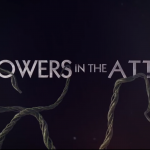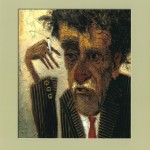Each week in Eat Your Vegetables, Jonathan Sircy shares the benefit and appeal of some of the culture’s more inaccessible or intimidating artifacts.
Cultural Vegetable of the Week: Beowulf (the poem)
Vegetable Equivalent: Spinach, the vegetable of warriors
Nutritional Value: A Christian perspective on what’s worth keeping and discarding from the non-Christian past
Recommended Serving Size: The Seamus Heaney translation read loud in 200-line chunks
The Beowulf poet lived in Christian culture, but the legacy of England’s pagan past was all around him: the remains of Roman buildings, the offspring and cultural legacy of three Germanic tribes, and even the language he spoke and wrote in. Consequently, Beowulf is filled with bittersweet reminiscences. Although it was written in England, its action is set in Scandinavia. Although its poet was Christian, its protagonists are pagan. And although its titular hero is powerful, the poem ends with Beowulf dying as a result of the very pride that made him formidable.
The poem’s tone is more elegiac than nostalgic. Think, for instance, of the verse from Genesis 6 — “There were giants in the earth in those days” — with the mixture of awe and ethical complications such a statement implies. The world of Genesis 6 offers a good analogue for the poem’s action as we learn that two of the poem’s monsters are the demon-offspring of Cain. The warriors of this world believe in God but not in an afterlife. Immortality can only be achieved through earthly fame. God may grant a warrior his strength, but a warrior earns salvation through his own bloody works.
As an epic poem, Beowulf contracts into its title character the culture’s representative strengths and weaknesses; namely, Beowulf is powerful but proud. The poem does not biographically record Beowulf’s adventures from the cradle to the grave, but instead focuses on his three greatest adventures. The first two happen in Beowulf’s youth. A demon named Grendel has invaded the mead-hall of the renowned king and held sway for a dozen years. Beowulf visits and rids the kingdom of Cain’s spawn. But Grendel’s mother seeks revenge, and Beowulf must travel to her underwater lair to dispose of her. The poem’s conclusion records the aged Beowoulf, having served as king for fifty years, fighting a dragon to the death.
The poet critiques the violence of his Germanic ancestors, revealing revenge as a brutal cycle because its logic can be adopted by anyone. Beowulf uses it to avenge the men Grendel has killed, but Grendel’s mother can just as legitimately use it against Beowulf and his men after her son’s death. This culture was physically imposing but ethically corrupt. Its moral code ensured its demise.
The poem reminds us of a culture’s fragility, not only through its contents but by its very existence. It is the longest epic poem in the Old English language, yet only a single thousand-year-old copy of the manuscript survives. An eighteenth-century fire damaged this sole manuscript, and careless handling by readers further deteriorated its condition. There is no way of knowing if the poem was part of a larger tradition of oral epics or if Beowulf was regarded in its time as it is today, a quintessential statement of Anglo-Saxon values.
The poem provides an interesting juxtaposition with a later English epic, Paradise Lost. Milton’s epic heroes — Adam and Eve — must demonstrate a very different kind of heroism than Beowulf. Epic action, Milton maintains, does not require protagonists to fight dragons or conquer an opposing nation. Rather, real epic heroism is saying no to a tempting serpent. Beowulf’s heroism is external. His failings are internal. From the poet’s perspective, this is why Bewoulf’s story is so bittersweet.















